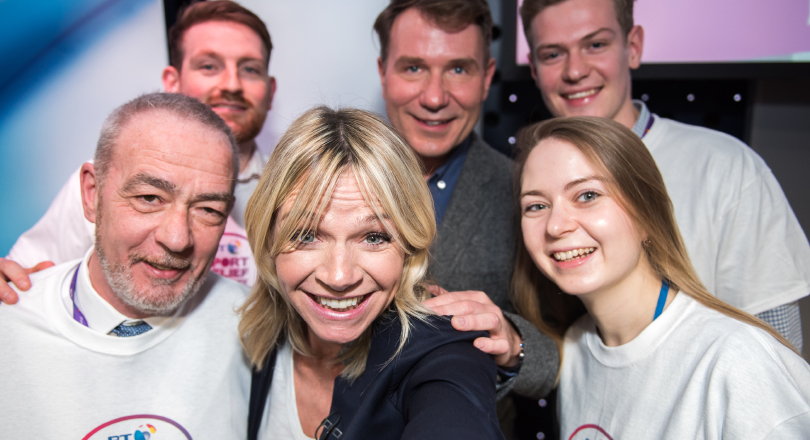We launched The Listening Post in August 2016 within BT’s Global Services division. I was a co-founder with my line manager Nick Greenley.
As a line manager of six people myself, I had attended a mental health awareness training course, which taught me how to recognise the signs in myself and others.
We were concerned about time being lost due to stress and mental health issues. Plus I have personally experienced work-related stress and anxiety.
There were eight volunteers to support 400 Global employees. We didn’t provide counselling but we offered a listening service with signposting to professional help.
We provide information on the internal website linking to BT policy, employee assistance programmes for team members and managers, NHS Direct and other external resources.
Over time our service won recognition from BT’s chief medical officer Paul Litchfield; BT’s global health and wellbeing team; the BT volunteering team; Prospect; the CWU; and senior managers across the business.
In March 2017 we won the annual global BT Challenge Cup award for “Delivering Our Purpose – using the power of communication to make a better world”. We also received the BT-wide public vote for the People’s Choice category. The Challenge Cup recognises achievements across the company.
Rolling out the service
In October 2017, on World Mental Health Day, the service was rolled out to everyone in BT UK as the Peer to Peer Support Network for Mental Health.
In publicising our work externally I have met footballer Robbie Savage and TV and radio personality Zoe Ball, who recently cycled from Blackpool to Brighton to raise money for Sport Relief (which BT sponsors) in memory of her partner who took his own life.
The Peer to Peer project now has more than 130 active volunteers across BT and more who are awaiting training. All attend a mental health awareness course. Volunteers need to:
- be passionate about mental health issues
- have a genuine interest in helping others
- listen without judging.
My story
Like others, I have shared my story on the BT intranet. Twice now I have taken time out due to stress and anxiety after working on challenging projects.
I was physically and mentally exhausted, sleeping badly, irritable and withdrawn and my work and personal relationships were suffering.
The trigger point for recovery was recognising I had a problem. Once I’d been honest with myself, I felt I could open up to others. I was fortunate to find a sympathetic and empathetic listener. I also spoke honestly with my wife at last.
Mental health issues are like being in a pressure cooker. Without a valve to release the pressure, it builds and builds. Talking opens up that valve.
I now actively self-monitor my stress levels and if I find these rising I take action – going for a walk, talking to a friend, my wife and colleagues in the Peer to Peer Support Network.
Setting up the network has also been therapeutic. I’m a people person and if at the end of a working day you have made a difference to just one person then that has been a very good day.
My advice to others
Remember, this is not a weakness. Find someone to talk to who will listen. Be honest with yourself and don’t be afraid to share. You aren’t alone – mental health issues affect one in four people. You’d seek professional help for a broken leg, so do the same for mental health issues.
- Mark Ogden is a senior business analyst in BT Global and a Prospect rep in Aldershot.
Peer to peer charter
All participants are given the peer to peer charter, which guarantees to treat all conversations in confidence, unless someone is in danger of harming themselves or others.
The charter promises that volunteers will treat participants with respect and dignity, actively listen in a non-judgmental way and offer information on further support.
The project does not keep identifiable records though we gather anonymised statistical data for reporting on its impact.
Info from your union
Prospect’s website contains a wealth of information on tackling stress and mental health issues. See bit.ly/Prospect-stress
- This article also appears in Stage Screen and Radio magazine. Members can download the latest issue here https://library.prospect.org.uk/id/2018/July/4/Stage-Screen-Radio-Summer-2018

